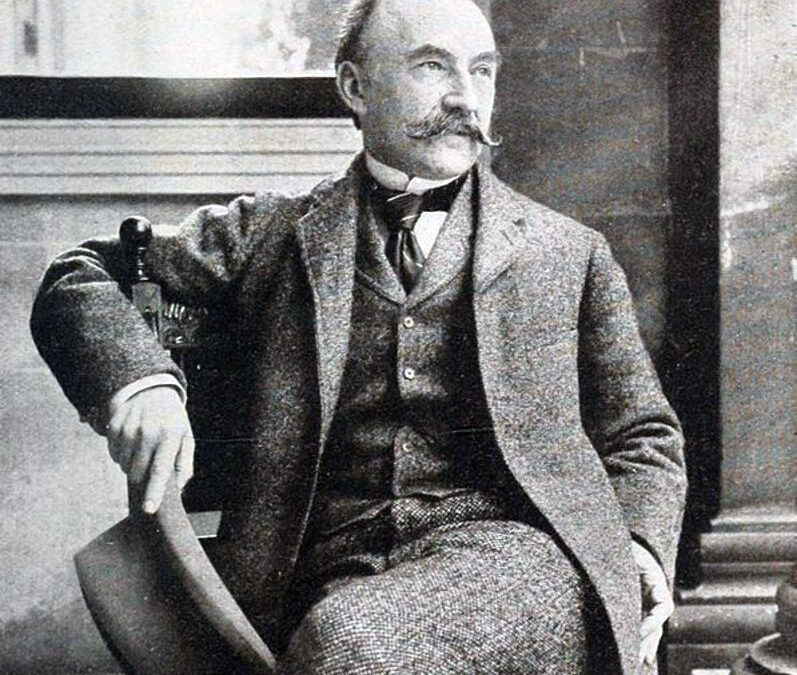Hardy’s poems reveal an unhappy life with his wife, Emma Gifford. Perhaps the most definitive is “Where the Picnic Was,” in which he attempts to resolve their often “horrid shows” ends definitively:
– But two have wandered far
From this grassy rise
Into urban roar
Where no picnics are,
And one–has shut her eyes
For evermore.
When Gifford died, Hardy married his secretary, Eleanor Dugdale. But he could blot out his misery with Gifford. Poems such as “The Going,” “The Voice,” “His Visitor,” “After a Journey,” and “At Castle Boterel” reveal his unabated feelings until he died in 1928.
– But two have wandered far
From this grassy rise
Into urban roar
Where no picnics are,
And one–has shut her eyes
For evermore.
Hardy remarried his secretary, Eleanor Dugdale. But he could blot out the misery and continued writing more elegies until he died in 1928.
The picnic was real and symbolic. Of course, the Hardy and Gifford had picnicked, and the one he might have recalled was probably in Dorchester near Weymouth Bay. It could not have been loving since they had been bickering for thirty years. However, in 1912, Hardy entertained William Butler Yeats and Henry Newbolt. They had come to deliver the Gold Medal of the Royal Society of Literature with a picnic, presumably where the picnic was. Gifford died in November 1912, and Hardy’s memory of picnicking triggered the poem.
Other poems in the cycle that began after Gifford’s death in December 1912 include “The Going,” “The Voice,” “His Visitor,” “After a Journey,” and “At Castle Boterel.”
“Where the Picnic Was” was set to music twice, first in Gerald Finzi’s Footpath and Stile (1921) and again in Andrew Downes’s Old Love’s Domain (1985).
See Thomas Hardy. “Where the Picnic Was.” In Poems of 1912-1913., The Poetry of Thomas Hardy: A Handbook and Commentary. (University of North Carolina Press, 1970
Where the Picnic Was
Where we made the fire,
In the summer time,
Of branch and briar
On the hill to the sea
I slowly climb
Through winter mire,
And scan and trace
The forsaken place
Quite readily.
Now a cold wind blows,
And the grass is gray,
But the spot still shows
As a burnt circle–aye,
And stick-ends, charred,
Still strew the sward
Whereon I stand,
Last relic of the band
Who came that day!
Yes, I am here
Just as last year,
And the sea breathes brine
From its strange straight line
Up hither, the same
As when we four came.
– But two have wandered far
From this grassy rise
Into urban roar
Where no picnics are,
And one–has shut her eyes
For evermore.

